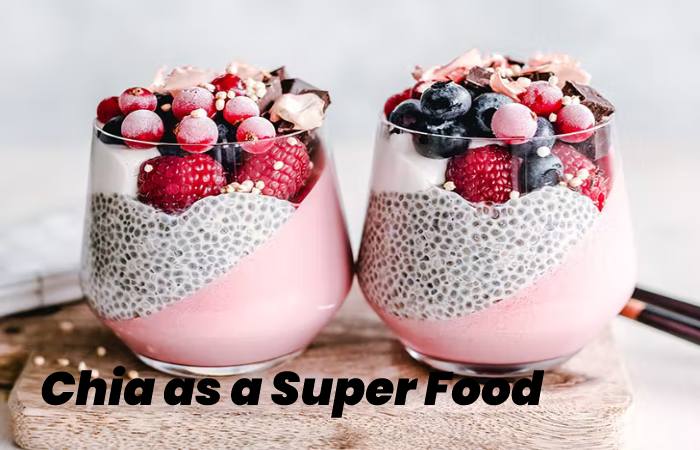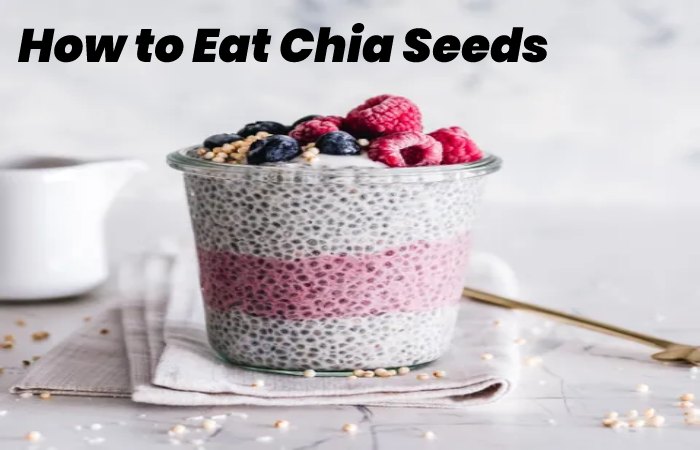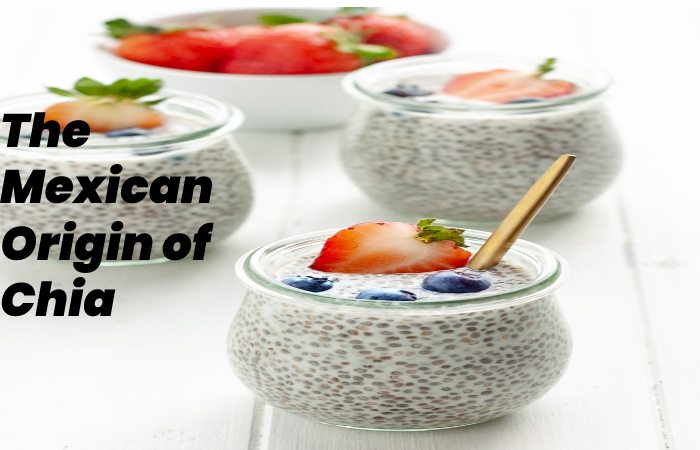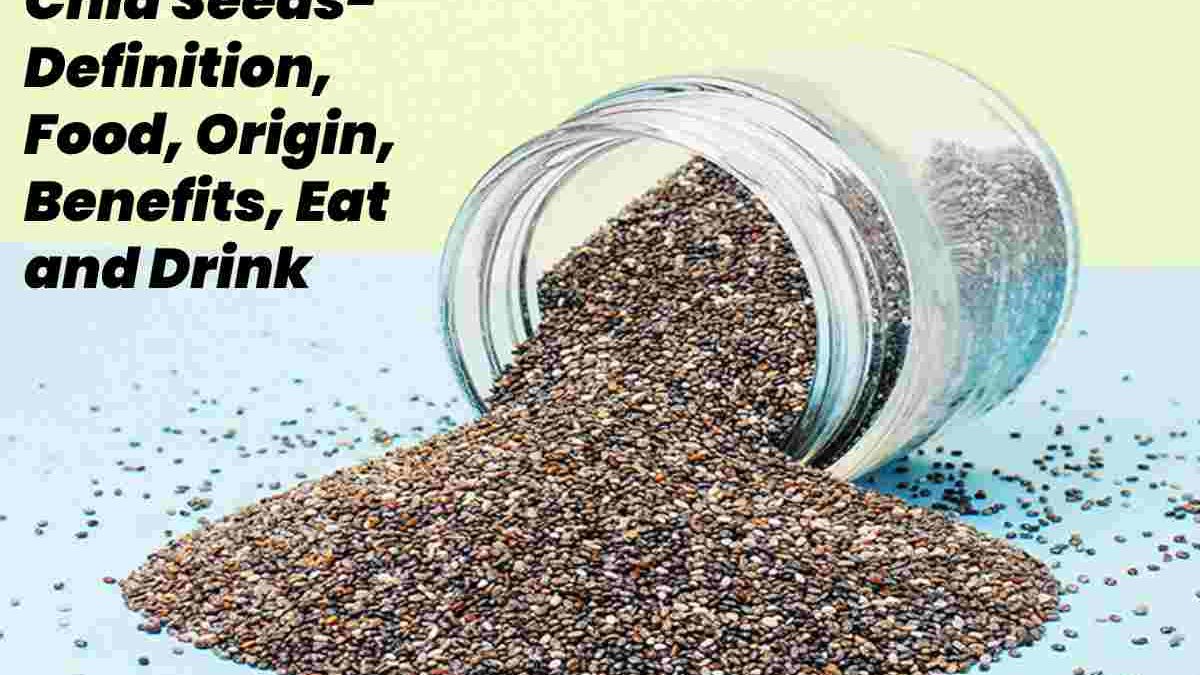Table of Contents
Chia Seeds Definition
Chia is a seed that can obtain from Salvia hispánica and that has substantial growth in southern Mexico and even in Australia, which is currently positioned as one of the primary producers in the world. In recent years, the feeding of chia has increased considerably due to its high health benefits. However, it was already part of the Aztec and Mayan empires’ essential diet before the Spanish colonization.
With some differences between them, these two cultures knew very well the properties that chia brings with it. In the case of the Mayans, who baptized the seeds with the said name and which means “strength”, they used it in their messengers to always maintain a reserve of food that would provide them with energy in case of emergency throughout their journeys. On the other hand, the Aztecs used them as medicine since they found their characteristics to favour the flow of saliva, soothe joint pain and eliminate skin irritation.
However, despite its high benefits, after colonization, its popularity was lost because the Spanish banned them after noticing their use by the Aztecs in their rituals, forcing them to opt for other more common seeds such as corn.
Chia as a Super Food

Superfoods are those foods that have properties above the average, providing a more significant amount of vitamins, minerals, antioxidants and other nutrients that the body requires to function correctly.
- Every 100 grams of chia seeds contain approximately:
- 20.7 g protein
- 41.8 g carbohydrates (41.2 g from fibre only)
- 32.8 g fat (64% correspond to Omega 3 fatty acids)
In addition, it has 16.4mg of iron, 714mg of calcium, 613mg of niacin (Vitamin B3), 0.18mg of thiamin (Vitamin B1) and 0.04mg of riboflavin (Vitamin B2).
These characteristics allow chia seeds to be determined as a superfood since, among others, some of its most notable benefits are that it helps burn fat faster, thanks to its high fibre content that stimulates and prolongs the Feeling of full.
Properties and Benefits of Chia Seeds
Among the most critical benefits of chia seeds, we can highlight, for example, it is content two times higher compared to any other basis, five times more calcium than whole milk, two times more potassium than bananas, three times more iron than spinach and three times more antioxidants than blueberries. In addition, it also has boron (necessary to stimulate the absorption of calcium in the bones) and other minerals such as copper, manganese, niacin, zinc, etc. It also has Omega 3 essential fatty acids.
Its fast-digesting protein content also provides the nine essential amino acids. In contrast, its high soluble fibre content accelerates and prolongs satiety, reducing cravings between meals and improving the digestive tract, thus stimulating the metabolic rate throughout the day.
Its low glycemic index makes it an ideal food for people with diabetes, as it allows for more good control of sugar levels.
Thanks to the antioxidants, the immune system is improved after eliminating the toxins that the body absorbs daily. In addition, this is one of the properties that allow it to stay fresh and edible, even for up to 4 years, before the flavour, odour, or nutritional value begins to deteriorate.
On the other hand, chia seeds, which are rich in Omega 3 essential fatty acids, and which classify as good fats, favour the cardiovascular and circulatory system, by keeping cholesterol levels in the blood at bay. It has been shown that they contain a higher level of Omega 3, far surpassing flax seeds or salmon.
For many more reasons, chia seeds should include in all diets, especially if you are looking to lose body fat. Some studies conduct with chickens and pigs fed chia seeds found that the eggs and meat of the animals, respectively, reduce saturated fat content and increase unsaturate fat content.
Contraindications of Chia Seeds
Despite its wide range of benefits for the body, excessive consumption of chia seeds can also trigger some negative aspects, such as lowering blood pressure, especially in the elderly and older, if combined with blood pressure medications. It recommends, under any circumstances, for people taking anticoagulants.
There have also been cases of people with allergies to chia seeds, who eventually are also allergic to nuts and plants of the Salvia family. In these cases or doubts, it is best to visit the doctor to learn more about the subject and follow some preventive action treatment to counteract the effects if you have consumed them by accident.
How to Eat Chia Seeds?

Thanks to its easily digestible properties, chia seeds can consume by anyone, in different preparations or simply by eating a spoonful of the sources.
Here are some of the ways to eat chia seeds:
You will need:
- A tablespoon of chia seeds
- A glass of water or any other liquid; can be the juice of a fruit
Preparation:
- The seeds should first place in the liquid, sitting for approximately 10 minutes or less until all the juice has absorb.
- Once this does, a kind of voluminous gel should form. In which you should take ⅓ of a cup of the freshly made mixture and add 3 cups of water to two.
- Mix and strain if necessary.
- The preparation can store in the refrigerator for consumption at any time.
- In Mexico and Dominant America, a trendy drink known as fresh Chia mixes chia seeds with water, lemon juice, and sugar.
Fresh Chia Recipe
On the other pointer, you can also drink the tender shoots of the seeds, which provide high amounts of vitamins and minerals. If preferred, the roots can also add directly to salads or desserts and even combined with cereals and milk. Some people use to grind or crush them to use in soups and creams.
Recently they have also begun to use in the bakery. After multiple investigations, it observes that bread. Chia seeds have a better concentration of proteins, dietary fibre and good fats.
As it cannot otherwise, it is always best to consume them naturally to ensure that you maintain all their nutrients. However, its intake should limit to small portions due to its high-calorie content. As is the case with other nuts, among which walnuts and almonds stand out.
The Mexican Origin of Chia

Chia is the seed of the Salvia hispánica plant, an annual herb that belongs to the same family. In as other salvias such as mint or thyme. Its leaves are large and slightly bushy, oval in shape, and have whitish or violet flowers. If we talk about the seed, chia is easily recognizable. Its intense chocolate colour and tiny size (1 or 2 mm in diameter). Its oval shape and its mild flavour, are similar to that of nuts.
Can you Drink Chia Every Day?
Superfood, yes, but not miraculous. Experts in nutrition and dietetics agree that chia can also have specific contraindications. And this is when we ask ourselves: is it healthy to consume it every day? In which cases is discouraged?
Despite its multiple and apparent benefits and nutritional contributions, it is necessary to pay attention to how it consumes. It must always supervise by a professional and adapt to the conditions and needs of each person. Chia is not, therefore, a panacea or a food capable of regulating pathologies. In such as hypertension, diabetes or cholesterol, but must integrate into a healthy diet and lifestyle.
Conclusion
Chia seeds are tiny seeds from the Salvia Hispánica plant of the mint family. This plant is natural to South America, specifically. In the centre and south of Mexico, El Salvador, Honduras, and Guatemala. It is currently very well known, as it has become quite fashionable after so highly recommend. In to start changing eating habits for a healthier life. In an addition to being very easy to get to different establishments, supermarkets, herbalists. Chia is gluten-free, making it a perfect food for celiac people.
Already in the Mayan and Aztec cultures, chia seeds use in the daily diet. It uses by warriors, as they sustainably provide a lot of energy. Chia is an ancient Mayan word that means strength. Despite their ancient history as a nutritional staple, chia seeds have only recently recognize as a true superfood.

